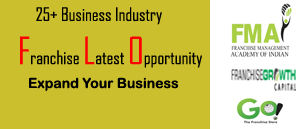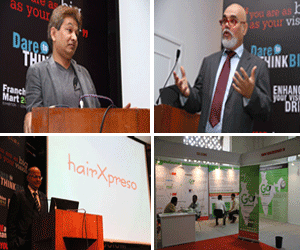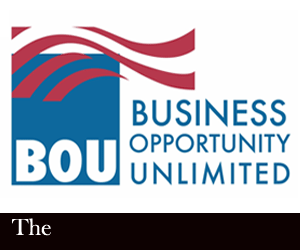If you go out shopping and discover that your favorite brand has put 50 percent sale on all its merchandise, wouldn’t you like to share the information with your friends? In doing so you would be indulging in one of the easiest forms of marketing that is known as word-of-mouth.
The medium has its own unique importance, the core one is that it is ‘contagious’. We see many advertisements and been to many events of companies but we tend to hesitate to discuss about that. It is so because we haven’t had the personal experience of the service they are offering. Why word-of-mouth is contagious is because people pass on their experience to others and then it becomes viral around many. This is the reason it makes the medium popular among companies to promote their services, as it is economical and speedy.
For Zomato, an online company which offers directory of restaurants across Delhi/ NCR and also helps customers make a choice by making the menus of these restaurants online, relied heavily on this medium when it started out. For Deepinder Goyal, the co-founder of this company, the medium of word-of-mouth enabled him to reach the masses.
“While we were working at Bain & Company (management consulting), Pankaj Chaddah and I noticed that a lot of our colleagues would use the stack of menus collected over time in the office cafeteria to order food. This set of menus was neither updated nor exhaustive, so we asked ourselves, ‘what if these menus were available online?’ That was how Zomato (then Foodiebay) was born. We then went on to build this database and soon had gone live with menus for 1,200 restaurants in Delhi NCR (India) in July 2008,” says Goyal.
Word-of-mouth is not something recently found medium, people has been using this medium since long time back. The difference is only that now through social networking site approachability has become much strong than before. “We believe word of mouth marketing is one of the most traditional forms of marketing and probably the best form of brand endorsement. It is definitely the most credible form of advertising because people who stand to gain personally by promoting your product or service put their reputations on the line every time they make a recommendation,” says Goyal.
When a small company lays its foundation, promotion of the company through big advertisements usually shake their budgets. In that way networking through online and endorsing its services through people’s own medium makes the reach cheap and effective. “When you’re trying to build awareness about a new brand with very little money, word-of-mouth and social channels play a big role. We used all the channels we could, right from our friend list on Orkut to Facebook and then Twitter. The major advantage of this was that the generation adopting our product was very active on social media. Personal endorsements from people to their friends gave us a big boost in the initial days,” says Goyal.
As Goyal shared his experience further, he stressed that the time in which we are living is online driven and so it is an impressive medium to talk to the customers with a personal touch. “While the reach and impact of paid marketing is evident, word-of-mouth plays a massively important role. Especially in an age where the Internet is a powerful tool integral to a company’s marketing efforts. Interaction between a product’s users and consumers amplify the original marketing message. Individuals become your brand evangelists, and in turn, build a larger circle of evangelists every time they are talking about your brand – be it on a social networking platform, or in person. Sharing feedback, news, updates and content becomes that much easier, because a user is more likely to be welcoming of a brand through a known, trusted channel – a friend, for example – than by being bombarded by a brand’s marketing,” says Goyal.
According to him companies should focus on turning their users into their brand ambassadors, because no amount of paid advertising can replace the faith instilled by genuine feedback of a good user experience.
Ensure good word-of-mouth promotion for your company:
Social media has been the most effective channel for us in terms of user engagement. It serves as our primary medium for interacting with our users, particularly on a one-on-one basis. According to Goyal, Zomato consistently tries to stick to a few basic principle.
Communication is a two-way road:
We love speaking to our users, and encourage them to give us feedback (negative or positive), suggest ways to improve our product, ask for recommendations on where to eat, or ask anything about our product. We approach them as we would a friend, and try our best to keep the turnaround time to a minimum. This helps strike a chord with them as a brand that listens, and genuinely cares. To make sure we stay on top of this, we have a dedicated in-house social media team.
Content is king:
We hate spam as much as anyone else, which is why our posts are planned and timed so as to not clog anyone’s feed. Our in-house social media and graphics teams work together to create the content that goes up on our social media platforms, which keeps it fresh and original. This usually gets people talking and spreading the word.
Do what you do best:
It’s easy for a brand to stray from its core focus and become disconnected from its users. We stick to our domain (which, in itself, is quite extensive) in that our content is related to food and nightlife, product launches/tweaks, and updates on Zomato. This makes it relevant to our users, immediately helping to build a brand identity.
“As a company, we’re lucky to be in an environment that is conducive and receptive to non-traditional forms of marketing. Social and word-of-mouth are important to us because of their efficacy, and most importantly – they help make a powerful association with our customers,” says Goyal.































 +91 9909960054
+91 9909960054
Pingback: Anonymous
Pingback: Anonymous